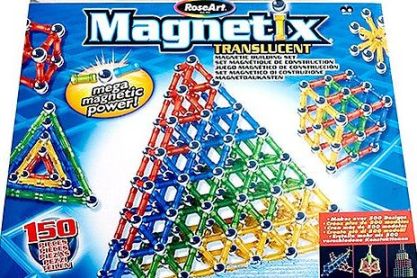Western District Grants and Denies in Part Motion to Dismiss False Advertising Claim
Plaintiffs PlastWood SRL and its subsidiary, PlastWood Corp., compete with defendant Rose Art Industries, Inc., in the sale of magnetic construction toy sets. Rose Art’s product, MAGNETIX, is comprised of small plastic building blocks that are held together by magnetic force. Rose Art’s advertising and product packaging state that “500 designs” can be built by assembling MAGNETIX building blocks in certain described manners. PlastWood alleged in this Western District false advertising case that many of those structures cannot be built and collapse under their own weight. PlastWood also alleged that the phrase, “Ages 3 to 100,” which appears on MAGNETIX packaging, misrepresents that the blocks are safe for children three and older because the blocks actually are dangerous to small children.

Rose Art moved to dismiss PlastWood’s complaint on the ground that the Child Safety Protection Act preempts PlastWood’s age-labeling claim. It also argued that PlastWood failed to state a Lanham Act claim because the complaint did not identify the MAGNETIX structures that cannot be built.
On Oct. 23, Judge James Robart agreed that the CSPA preempted the age-labeling claim because “Plastwood improperly requests this court to enforce safety labeling that would be incongruent with the safety labeling requirements” established by the Consumer Product Safety Commission.
On PlastWood’s “500 designs” claim, the court applied Rule 8’s “short and plain statement” standard rather than Rule 9’s heightened pleading standard for fraud. The court found PlastWood’s complaint met the lower threshold:
“PlastWood has pleaded sufficient facts to make out a plausible cause of action under the Lanham Act. Rule 8(a) requires a ‘short and plain statement of the claim showing that the pleader is entitled to relief.’ PlastWood’s complaint places Rose Art on notice of the wrong that it is accused of committing. The complaint states that Rose Art has informed consumers through its published advertising and product packaging that a wide variety of Magnetix structures (‘500 designs’) can be built. PlastWood contends that such messages are false or misleading because many of these structures cannot be built and collapse. PlastWood essentially argues that Rose Art has overstated the qualities or capabilities of its product in violation of the Lanham Act. … PlastWood has pleaded sufficient facts to state a claim that is plausible on its face.”
The case cite is PlastWood SRL v. Rose Art Industries, Inc., No. 07-0458, 2007 WL 3129589 (W.D. Wash.).
Reader Comments (2)
it was okay for 3-100, but I think that 3 is almost too young for them.
You need to know your child. And watch your child.